- Faculty of Engineering
- Department of Electronics and Computer Engineering Department of Electrical Systems Engineering Department of Mechanical Systems Engineering Department of Intelligent Mechanical Engineering Department of Civil and Environmental Engineering Department of Architectural Engineering
- Faculty of Applied Information Science
- Department of Computer Science Department of Information and Communication Department of Information Systems and Management
- Faculty of Environmental Studies
- Department of Architectural Design Department of Global Environment Studies
- Faculty of Life Sciences
- Department of Clinical Engineering Department of Food Sciences and Biotechnology
- Graduate School
- Major in Intelligent Structure and Functional Science Major in Electrical and Electronic Engineering Major in Mechanical Systems Engineering Major in Civil and Architectural Engineering Major in Information Systems Science Major in Environmental Studies Major in Biological and Biomedical Engineering
Faculty of Environmental Studies
Department of Global Environment Studies
- Department Introduction
- Education and Research Areas
- Subject Introduction
- Curriculum
- Careers and Further Study
- Department Introduction MOVIE
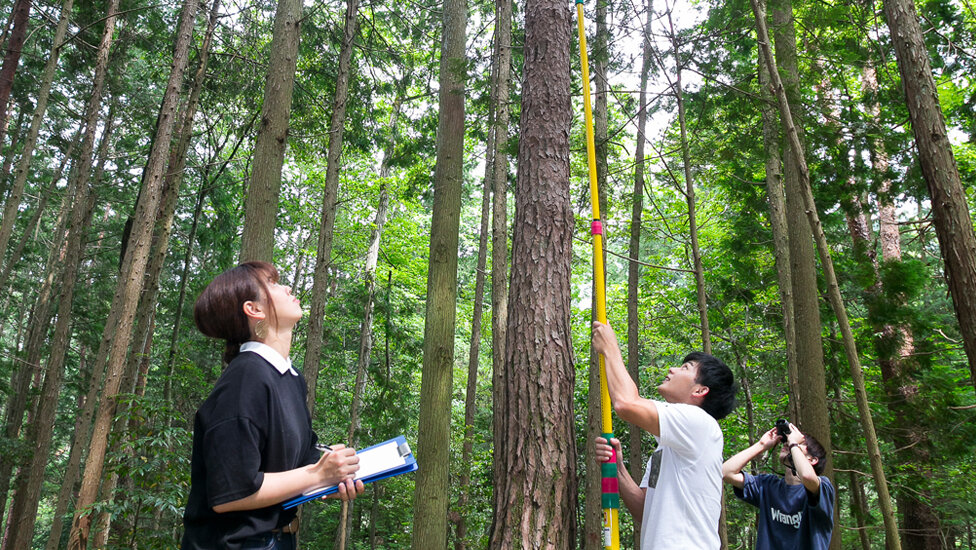
Producing professionals who possess the practical skills to address global environmental challenges.
In the coming era, protecting ecosystem balance will require an ability to ascertain the complex mechanisms and state of the global environment on a worldwide scale and then using this in the construction of recycling-oriented societal systems that exist in harmony with the environment. In the Department of Global Environment Studies, students study the three areas of “Earth Science,” “Environmental Coexistence” and “Environmental Information” in order to cultivate them into professionals equipped with the practical skills necessary to perform measurement, analysis, evaluation and planning connected with global environmental challenges.
Education and Research Areas
-
Earth Science
Students are equipped with specialized knowledge related to climatic change, such as that associated with global warming and urban heat islands, and they learn the skills necessary to analyze climate observation and measurement data. In addition, students study the mechanisms of natural disaster formation, such as the flooding, landslides and other disasters caused by increasingly frequent torrential rains in recent years, as well as learn about natural disaster response measures, prevention planning, etc.
-
Environmental Coexistence
In addition to learning how organisms respond to environmental change, based on an understanding of their biological systems, students are equipped with specialized, ecosystem-related knowledge. They will study fieldwork-based bio-conservation, as well as bio-resource and environmental conservation and rejuvenation planning and evaluation methods. Also, students will be equipped with specialized knowledge related to water quality analysis techniques, waste recycling and other technical topics.
-
Environmental Information
Students will be equipped with specialized knowledge and technical expertise in the use of remote sensing as an important part of global environmental investigation and analysis, and they will become familiar with the technology used to analyze and process image data and other data from global observation satellites, spatial information systems and other sources. In addition, students will acquire specialized knowledge and technical expertise in the latest survey technologies essential for performing environmental and disaster surveys, including aerial surveys and global positioning system (GPS) surveys.
Subject Introduction
-
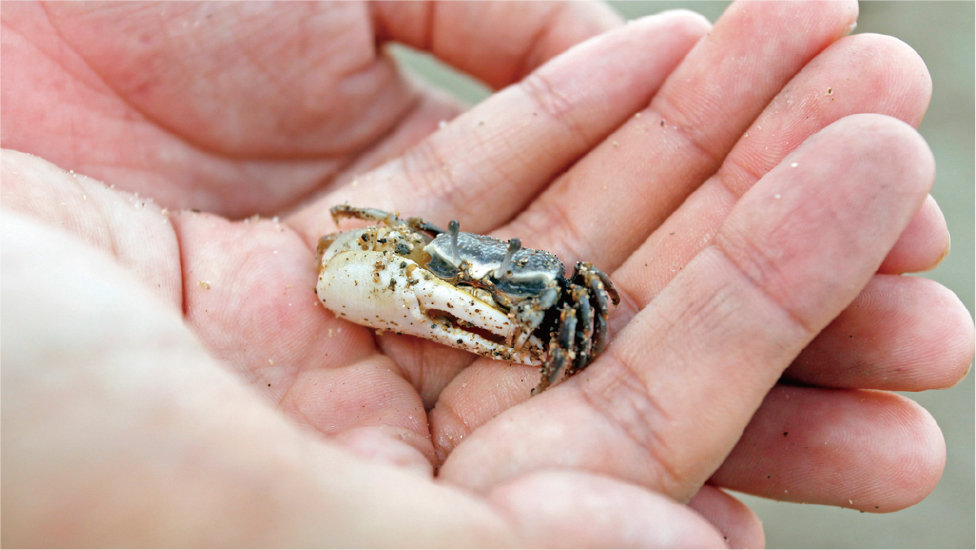
Overview of Environmental Coexistence
The environmental problems we currently face are becoming extremely diverse and structurally complex. Students will gain a deeper understanding of how to conduct scientific analysis of urgent environmental problems, such as ecosystem loss, river/lake/sea pollution, atmospheric pollution and waste-related problems, and they will explore what courses of action will facilitate harmonious coexistence with nature.
-
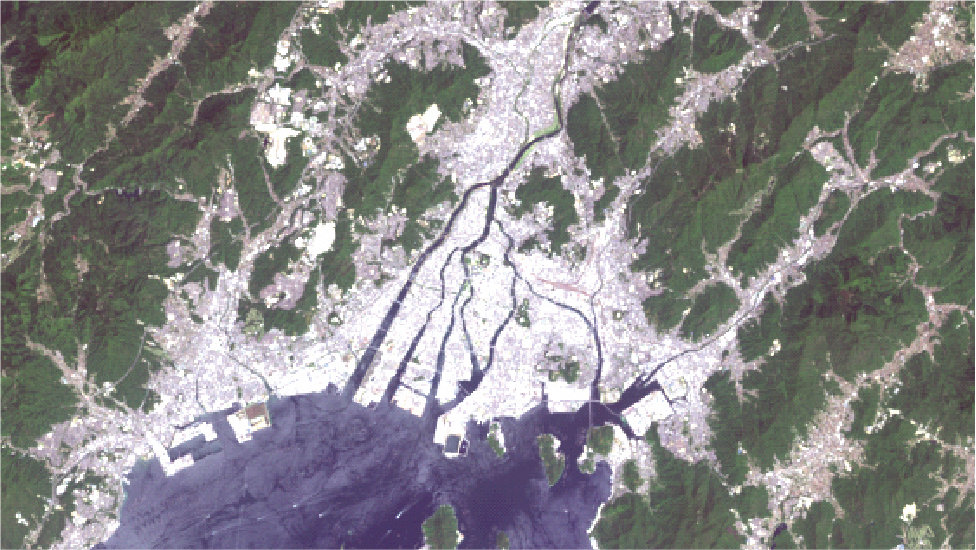
Spatial Information Processing Practical Training
Students will undertake geographic information system (GIS) spatial data measurement and input, as well as database processing, analysis and presentation. In addition, they will learn how to compile map data and earth observation satellite image data in order to provide effective analysis results.
-
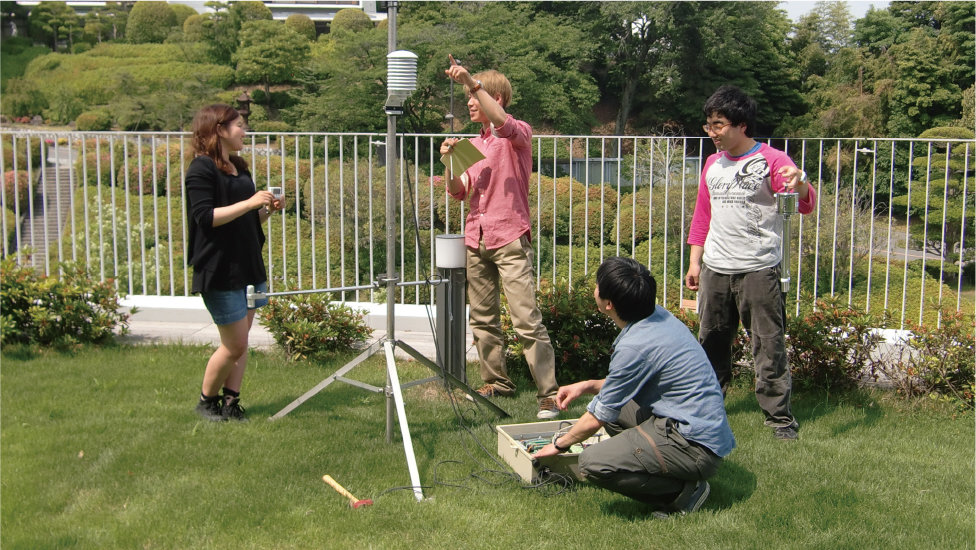
Earth Science Practical Training
This practical training is focused on measurement methods used with meteorological observations and atmospheric, thermal, etc., environmental observations from familiar, outdoor natural environments obtained using state-of-the-art observation systems, teaching students how to perform observation, measurement and analysis. In turn, this will enable students to cultivate greater insight and understanding into earth science.
-
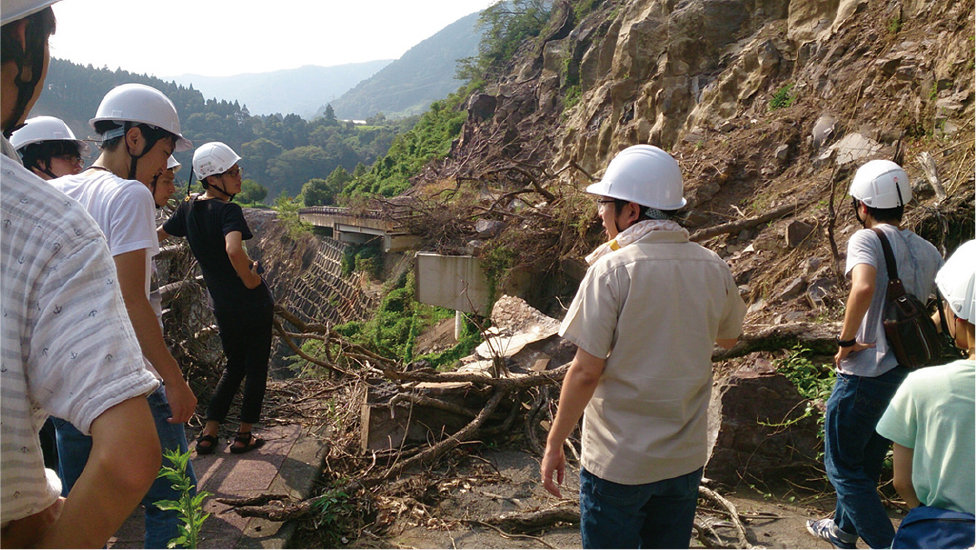
Natural Disaster Response Practical Training
Students will engage in group discussion and present the results of practical disaster prevention and mitigation efforts, from which they will gain a greater understanding of natural disaster response measures as well as the communication skills necessary to facilitate the spread of disaster prevention-related information and awareness.
-
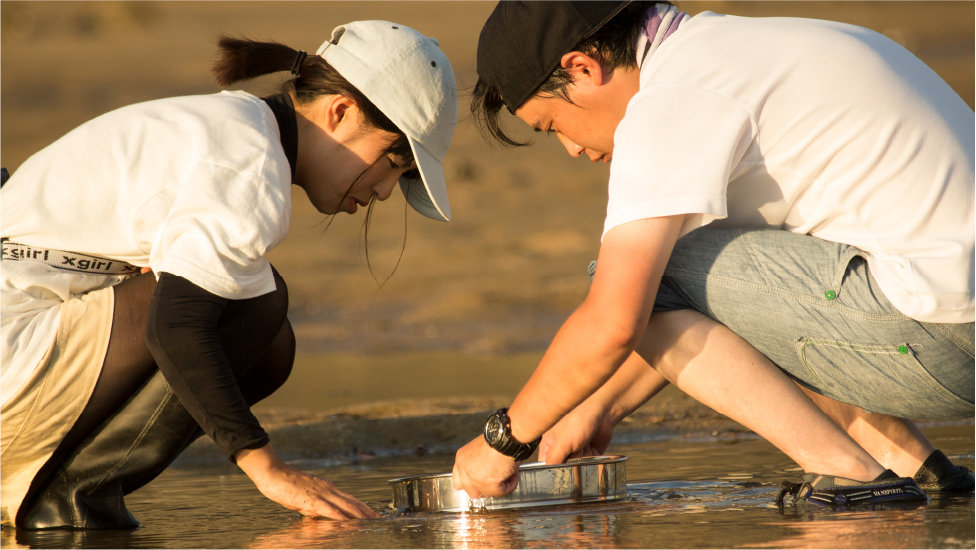
Fieldwork A and B
Students will learn through doing by being divided into groups to carry out surveys, observations and other tasks that will help them master survey and observation techniques, and they will also analyze, evaluate and summarize their collected/observed data and then present, debate, etc., the results.
Curriculum
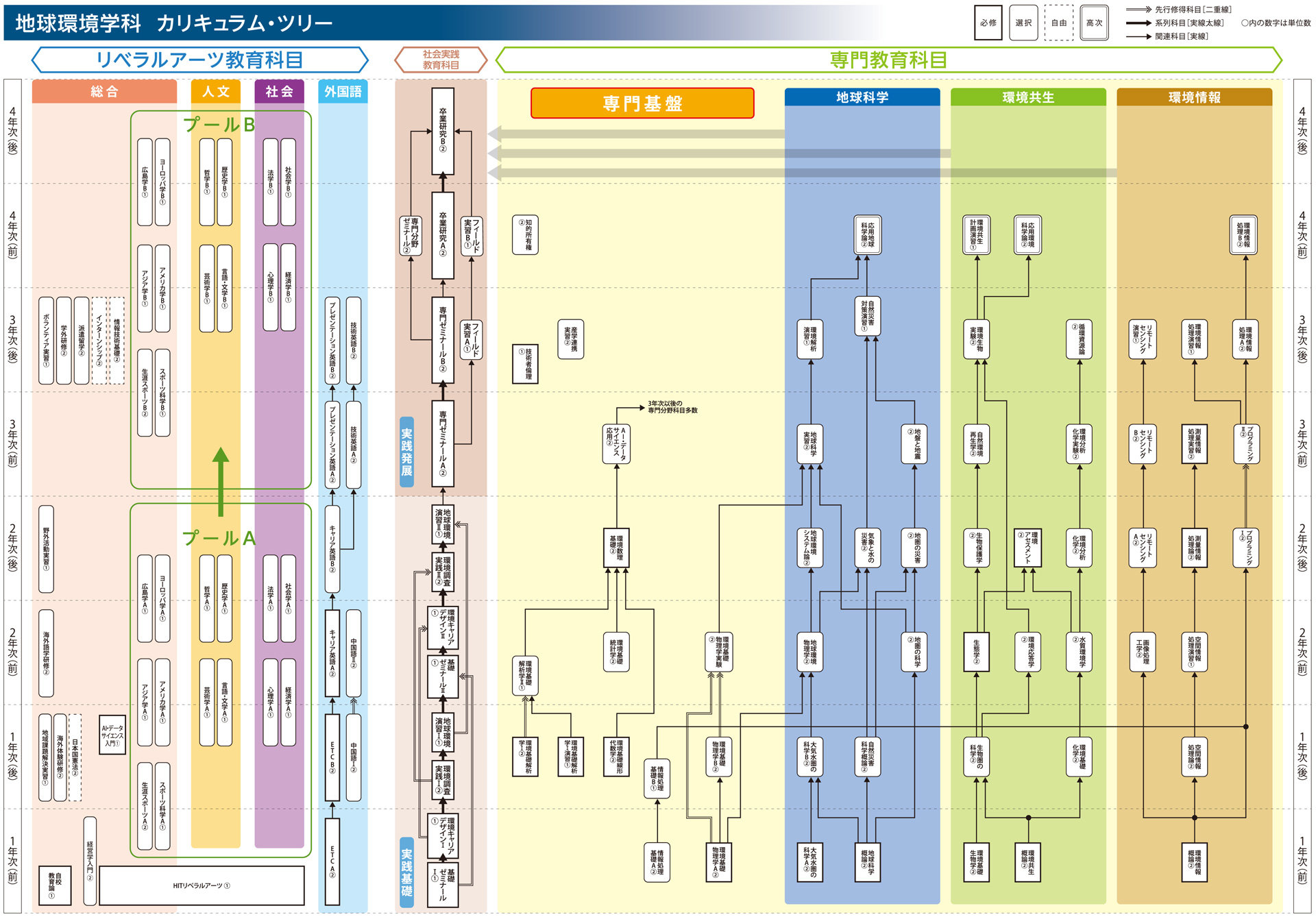
Japanese only






